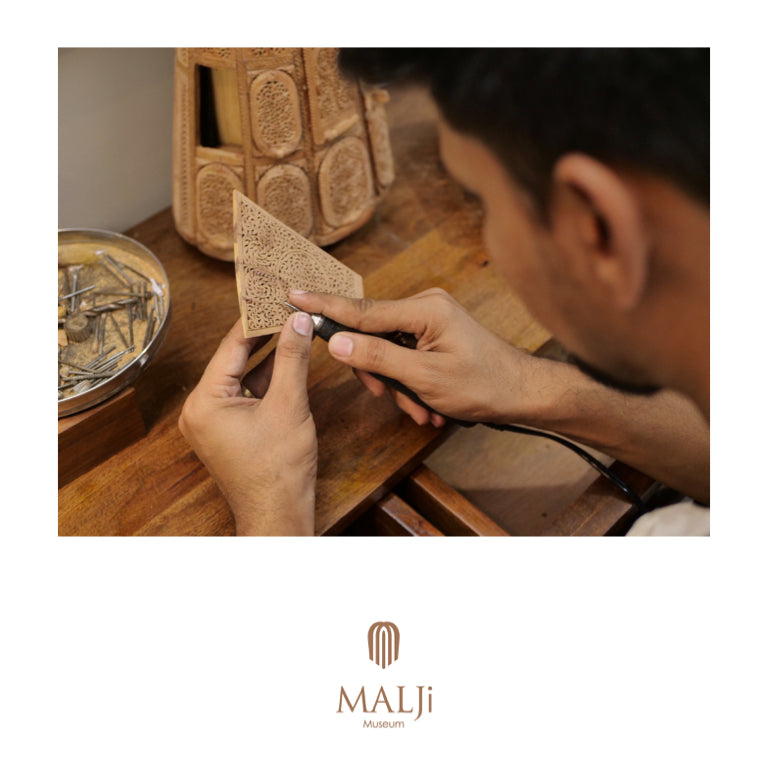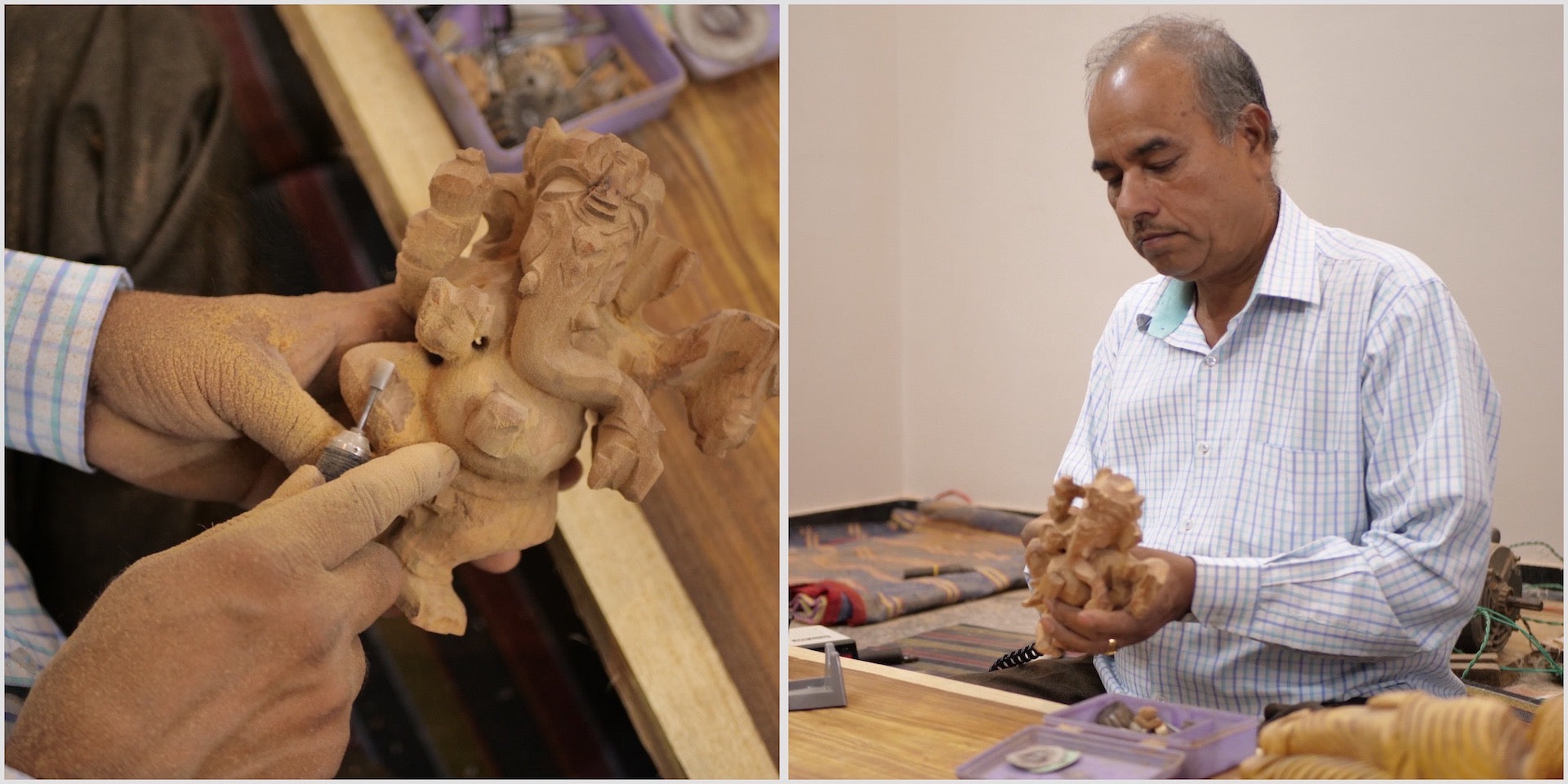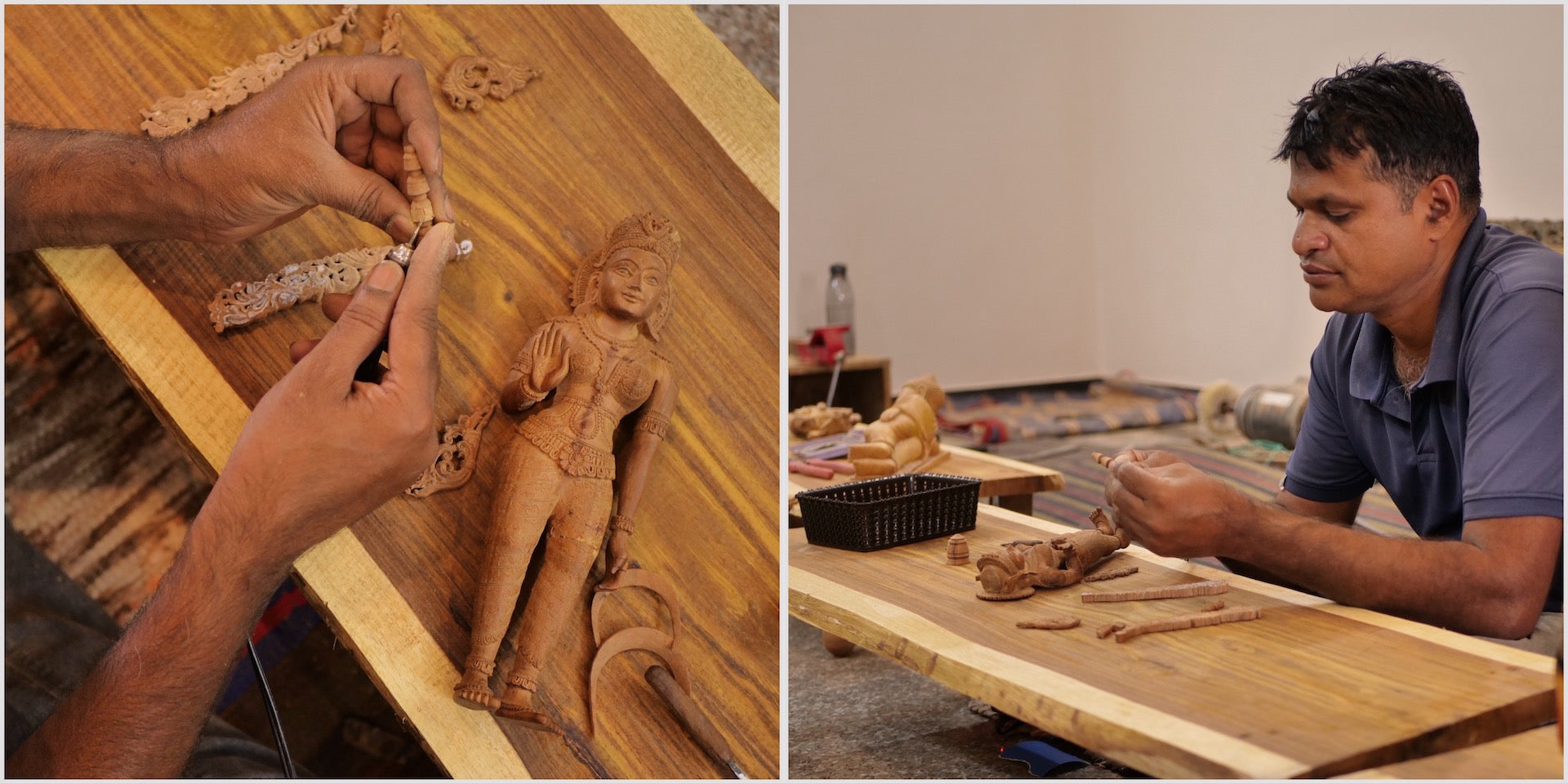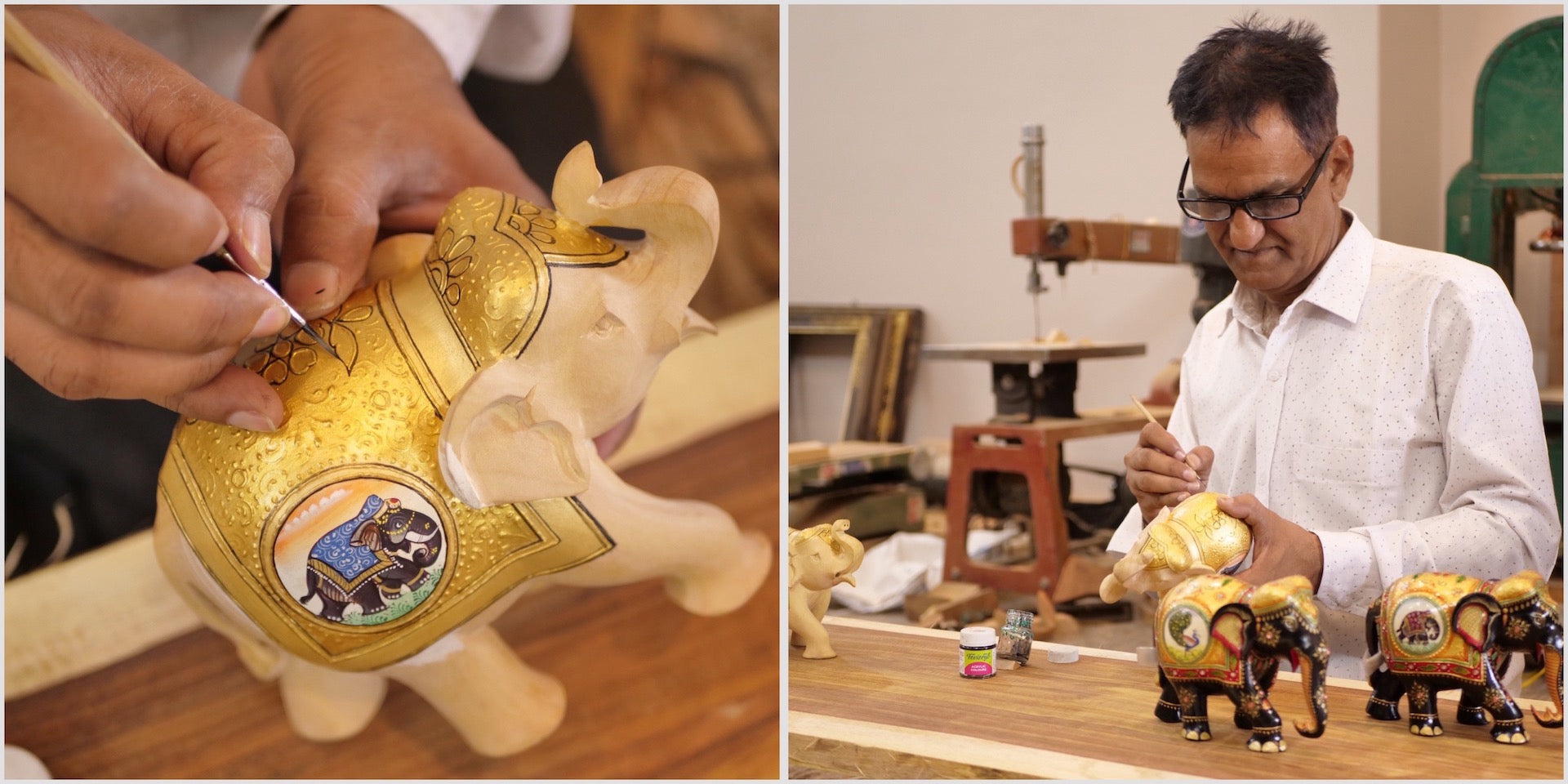Malji Museum Jaipur
India's First Wood Carving Museum in Jaipur
introduce you to Malji Museum, India's first wood carving museum, located in Jaipur, Rajasthan.
The museum pays tribute to the captivating art of sandalwood carving, and its story is intertwined with the legacy of Shri Mal Chand Jangid, a legendary master in this craft.
The Jangid Family Legacy:
- The Jangid family has been renowned for their wood carving skills since the Mughal era. Initially, they specialized in creating thresholds and architectural elements like others in their trade.
- However, Mal Chand ji, a visionary artist, elevated their craft to new heights. He meticulously crafted exquisite miniatures using the smallest tools and blocks of wood he could find.
- Despite enduring poverty and illness, Mal Chand ji remained devoted to his artistry, creating intricate masterpieces.
Discovery of Sandalwood:
- In the early 1960s, Mal Chand ji experimented with different woods and finally discovered *sandalwood*. This aromatic wood became the foundation of the Jangid family's tradition of miniature sandalwood wood carving.
National Recognition:
- Within a decade, Mal Chand ji's talent and prolific work earned him the *National Award for Wood Carving* in 1971.
Malji Museum beautifully showcases this legacy, celebrating the art, skill, and dedication of generations. If you're ever in Jaipur, I highly recommend visiting this museum to witness the intricate sandalwood masterpieces firsthand!
Mohit Jangid, a Sandalwood Carving Artist Whose Family Has Received Eleven National Awards, Carrying forward the artistic legacy of his great grandfather, Mohit became a sandalwood carving artist and dreamed of opening a museum to display his family’s artwork.



Experience the captivating story of Shri. Mal Chand Jangid, the legendary master of miniature sandalwood wood carving. The Jangid family, renowned for their wood carving skills since the Mughal era, initially specialized in creating thresholds and architectural elements like others in their trade. However, Mal Chand ji elevated their craft to new heights by crafting exquisite miniatures with the smallest tools and blocks of wood he could find. Despite enduring poverty and illness, Mal Chand ji remained devoted to his artistry, creating intricate masterpieces that caught the eye of a local businessman, Mr. Nahta, who became his patron.
Experimenting with different woods, Mal Chand ji finally discovered sandalwood in the early 1960s, which became the foundation of the Jangid family's tradition of miniature sandalwood wood carving. Within a decade, Mal Chand ji's talent and prolific work earned him the National Award for Wood Carving in 1971, and a special award from then-Prime Minister of India, Indira Gandhi, the following year. His masterpiece, the Rajasthani Doll, bedecked in all the elements of traditional Rajasthani clothing and jewelry, won him the award. The doll has 11 secret compartments that open to reveal scenes from the lives of local legends and heroes, embodying all that Rajasthan holds dear - honor, valor, and beauty.
He was held in high esteem by his admirers and was affectionately referred to as the 'Badam Wala' owing to his remarkable opening sculptures. His exceptional sandalwood work was equally revered and earned him the title 'Chandan Ke Chitere'. It is evident that his passion for his craft was reflected in the awe-inspiring pieces he created, which continue to captivate and inspire art enthusiasts to this day



Jangid Family is grateful for the opportunity to support other artisans who share their passion.
Jangid family are committed to promoting the art of woodcarving and supporting the livelihoods of skilled artisans. In light of the current economic climate, they have taken it upon themselves to hire a team of twelve artisans, who have been left without work due to the pandemic. The family provides the artisans with a steady stream of work and a guaranteed income. Furthermore, the artisans are given all the necessary raw materials, tools, and equipment to complete their work from the comfort of their own homes. The family even takes care of the transportation of the finished pieces, ensuring that the artisans are not burdened with any additional expenses.
